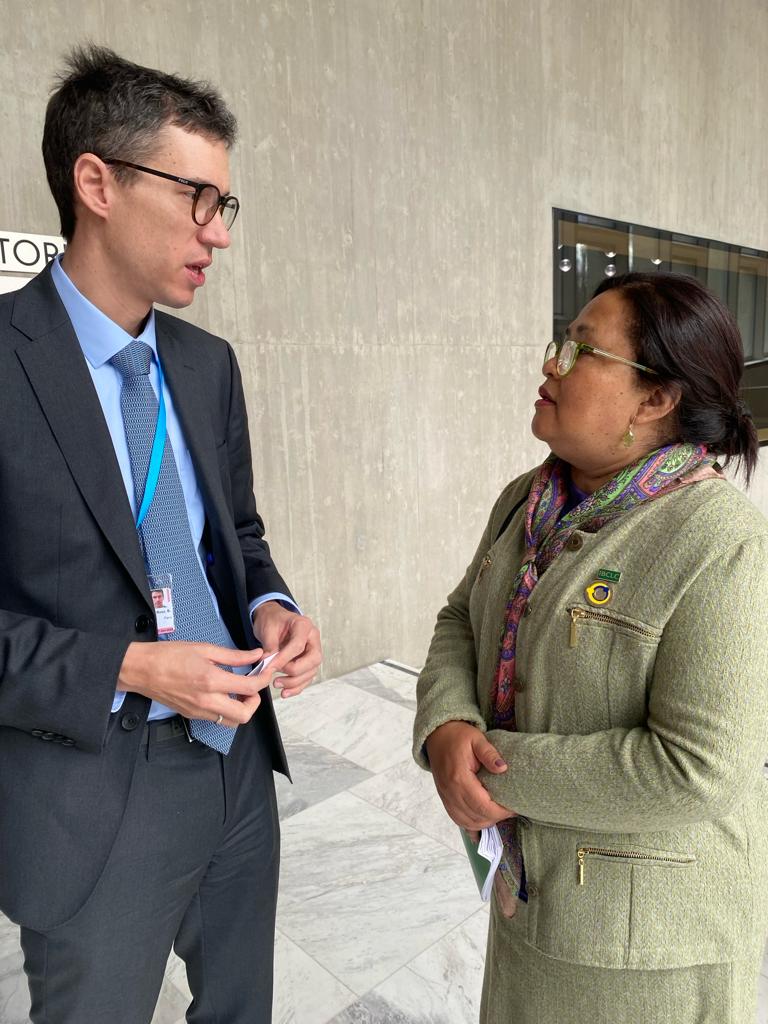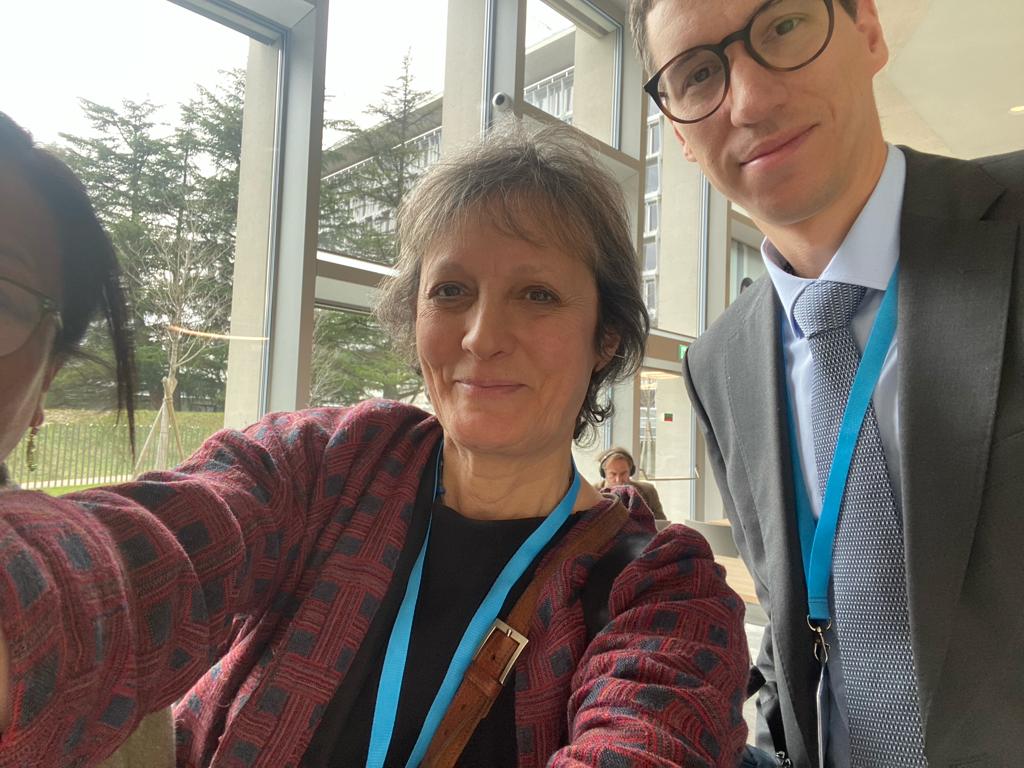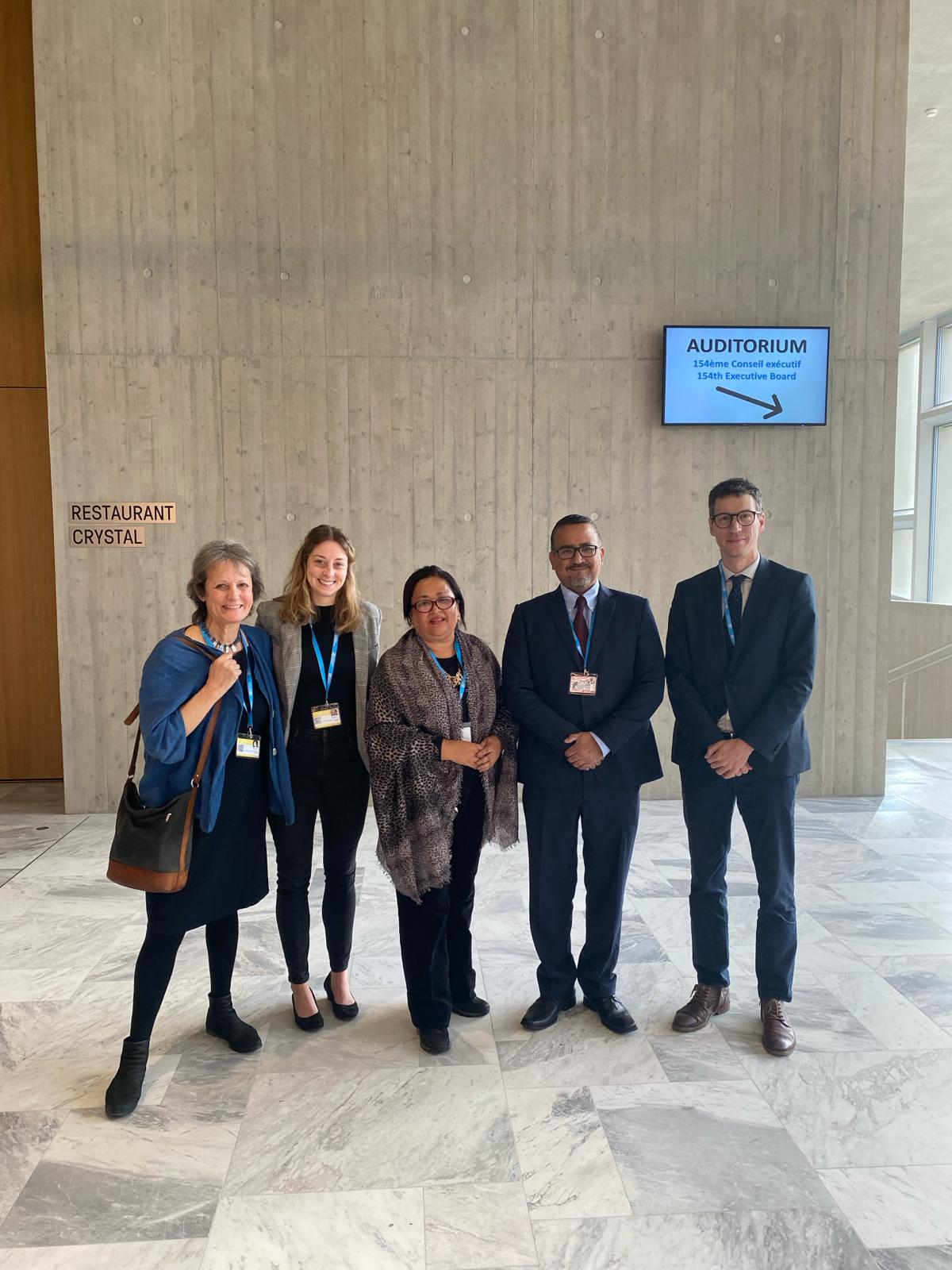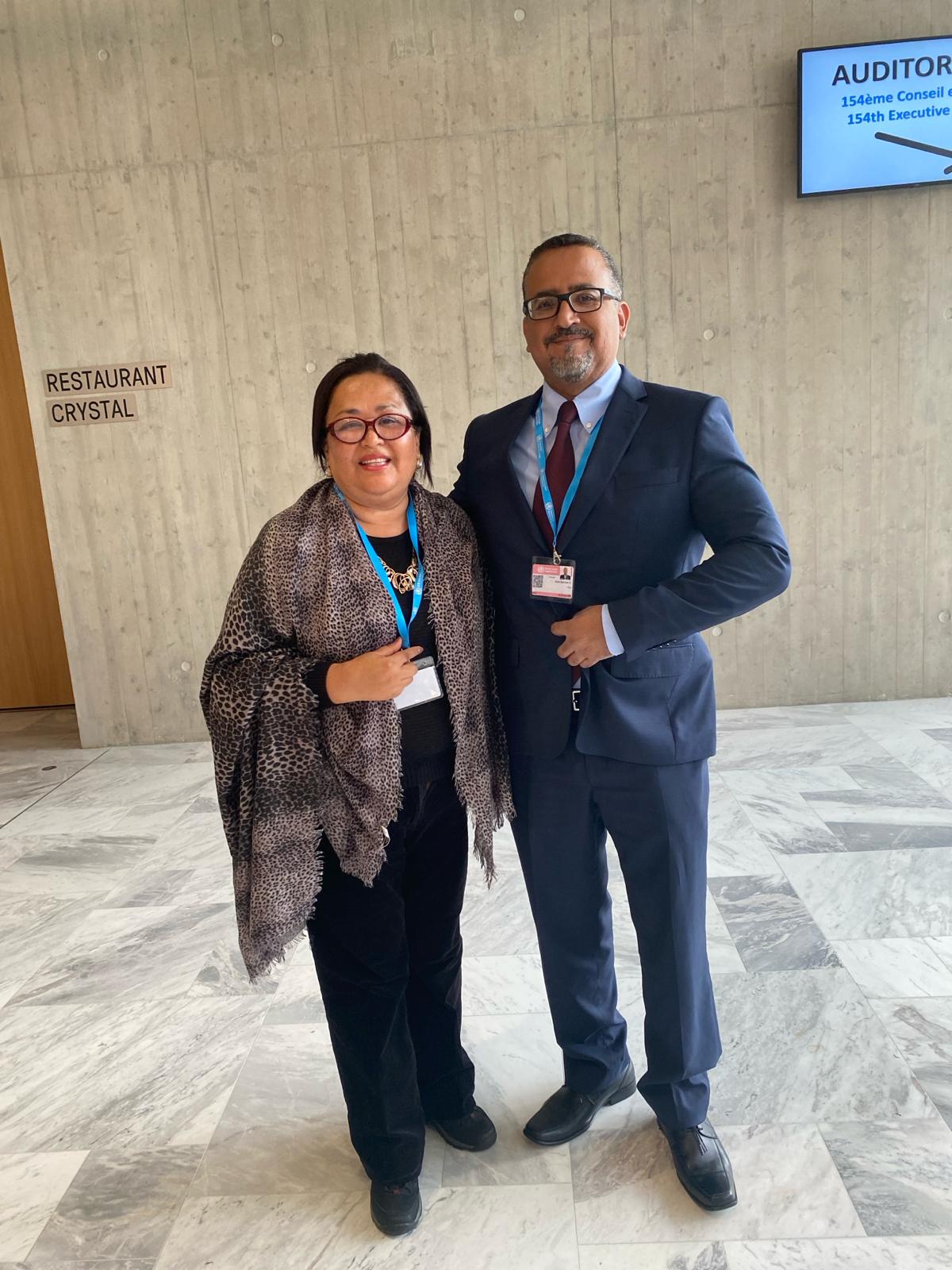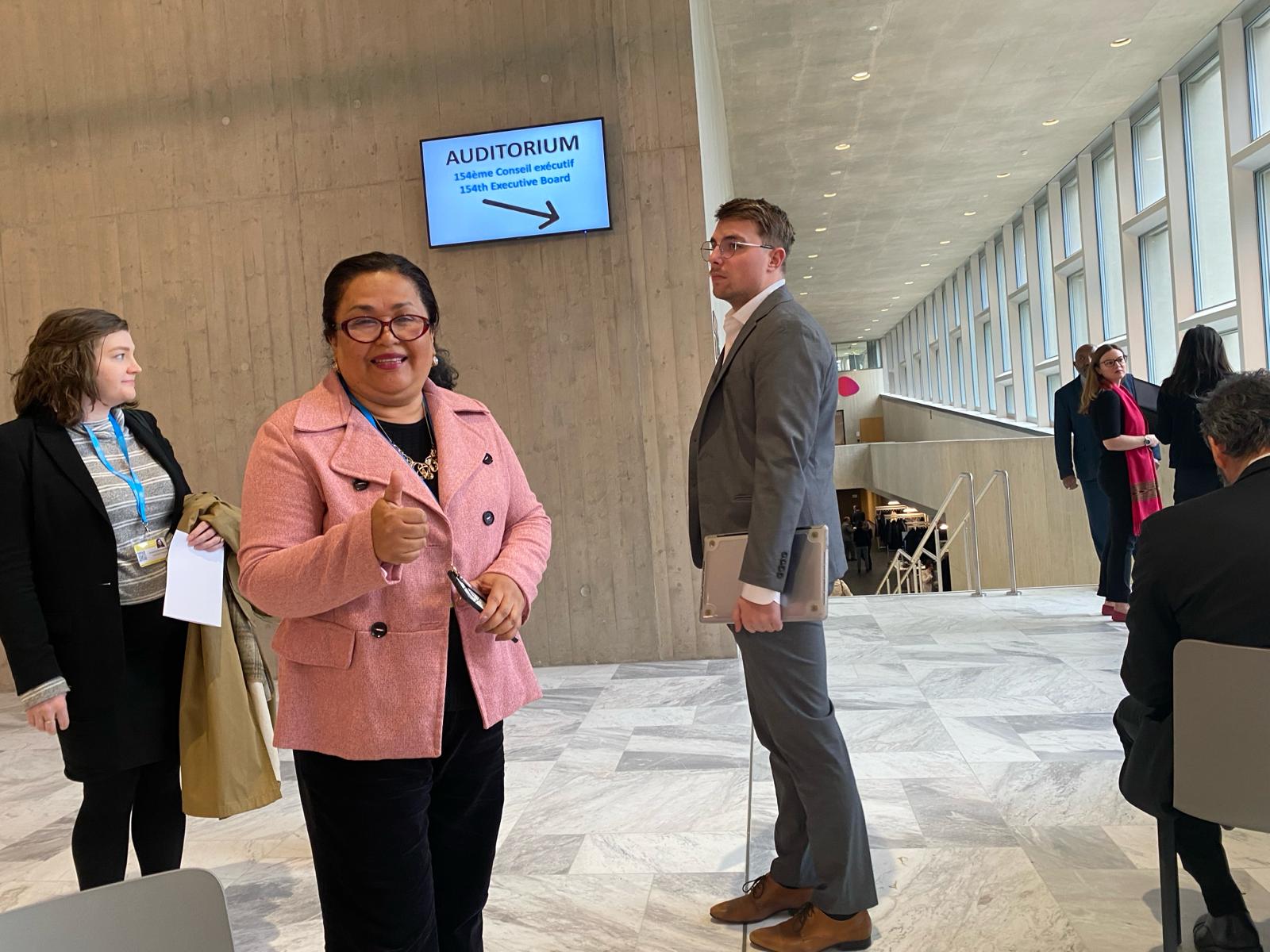22 January 2024 (Updated on 30 January 2024) | IBFAN-BMA
_________
154th session of the Executive Board
Geneva . 22 – 27 January 2024
World Health Organization (WHO)
2024 is a reporting year for Maternal Infant and Young Child Nutrition.
A team from the IBFAN network participated in the 154th session of the WHO Executive Board. Check below some key points that IBFAN raised with the Member States.
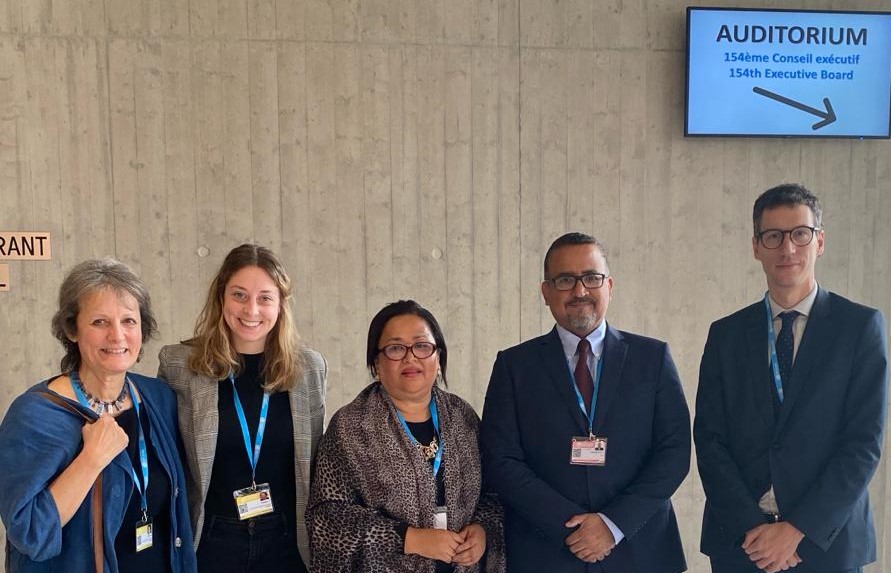
AGENDA ITEM: 20. Maternal, infant and young child nutrition (MIYCN). (Friday 10pm)
WHO should be proud of the materials on marketing it has produced under DrTedros’ tenure. The guidance on digital marketing is a key part of the package that will help governments lower health care costs and save lives.
Digital marketing is now out of control with companies paying influencers and using algorithms and deceptive schemes to target pregnant and lactating women and convince them that their expensive, risky, environmentally wasteful products are essential for children’s health. The Guidance doesn’t prevent any person buying products they need but could stop predatory marketing at source. A WHA resolution would help Member States protect optimal infant and young child feeding without fear of trade challenges. Misleading digital marketing will only get worse if the Guidance sits on the shelf ignored.
AGENDA ITEM: 14. WHO’s work in health emergencies. (Wednesday)
We witness in horror the worst human catastrophe in recent times and the crisis of refugees becoming a permanent emergency. As WHO comes under more pressure to be ‘operational’ its key norm-setting role must be maintained and protected and transparent, sustainable funding, free from commercial influence must be secured.
Emergency responses and the provision of products and short term Ready to use products should never be inappropriately promoted and must never undermine breastfeeding or indigenous foods culturally acceptable local food solutions wherever possible.
Responses should include skilled breastfeeding support, skin-to-skin, re-lactation and wet nursing . The Code, IFE Operational Guidance and IFE materials are key tools in emergency preparedness and response.
The deprivation of food, water and medical supplies should never be imposed as a weapon of war.
AGENDA ITEM: 24.2 Draft fourteenth general programme of work (GPW) (Monday 22nd, 4.30pm.)
Thank you Madam Chair.
The 14th GPW has a critical role to play and it should highlight and include the following:
Protection of breastfeeding throughout all WHO local offices – especially from new strategies such as digital marketing that is out of control.
WHO has a key role in ensuring policy coherence in WTO and Codex trade rules. This helps Member States regulate marketing in line with WHO recommendations, without fear of challenge.
The pressure to be ‘operational’ should not undermine WHO’s key norm-setting role, nor should WHO’s desire to streamline prevent new Resolutions going forward that save children’s lives.
WHO’s own internal policy must be free from undue commercial influence and FENSA must be strengthened to safeguard WHO’s independence, integrity and trustworthiness.
Flexible funding should be increased and anonymous donations forbidden, especially when ear-marked for specific programmes.
Thank you.
Patti Rundall (IBFAN – BMA)
Patti Rundall (IBFAN/BMA), 22/01/2024. Agenda Item: 24.2
ORIGINAL VIDEO: WHO
AGENDA ITEM: 22. Climate change, pollution and health. (Saturday, Morning)
Despite contributing the least to the climate problem, newborns with undeveloped immune systems and children bear the worst consequences. Breastfeeding is a lifeline in climate related emergencies and the most environmentally friendly way to feed young children.
IBFAN has followed Codex for decades and agreed with Dr Tedros’ warning that a transformation of the world’s food systems is needed urgently. The current corporate-led food system allows health-harming industries to undermine local agriculture, breastfeeding and biodiverse food systems. Ultra-processed products with large greenhouse gas, carbon, micro-plastic, water and land footprint are promoted with greenwashing claims as the solution to the climate crisis. This has to stop. WHO must make women and children a top priority and Member States must hold companies accountable for any harm they may cause.
AGENDA ITEM: 25.4 Engagement with non-State actors.
IBFAN has followed FENSA from the outset with concern – but for different reasons. We understand the pressure on WHO to use it as an ‘enabling framework’ for funding but this is risky.
WHO’s Conflict of Interest definition and terminology is still confusing and incorrect. Among other things, while it is strong on tobacco industry interference, it is often silent on other health harming industries. This leads to misplaced trust, image transfer and problematic entanglements with industries who promote green-washed, here-today-gone-tomorrow commitments
The term ‘partnership’ with for-profit entities is problematic in terms of ‘roles’ and leads to shared decision-making – compromising the freedom to act in the public interest. Decisions to engage should be rooted in careful assessments and analysis of roles, power imbalances and other risks. A tough task for WHO. Thank you
AGENDA ITEM: 12. Acceleration towards the Sustainable Development Goal targets for maternal health and child mortality. (Friday, Morning)
The most vulnerable members of our society are often the ones hardest hit by conflicts and emergencies.
One of the most important safeguards for maternal health and the prevention of child mortality is breastfeeding. It is the foundation for all 17 SDGs. It is the single most effective intervention in preventing deaths in children under five. And for mothers, it has a preventive effect on hypertension, Type II diabetes and breast cancer. Women have the right to feed their babies as they wish, but those rights cannot be fulfilled without support and protection from misleading marketing that promotes unnecessary, expensive, ultra-processed products.
Member States have a sovereign right and duty to adopt equitable, effective laws to protect citizens, make climate-smart decisions and prevent harmful marketing.
Nair Carrasco (IBFAN)
Nair Carrasco (IBFAN Peru), 26/01/2024. Agenda Item: 12
ORIGINAL VIDEO: WHO
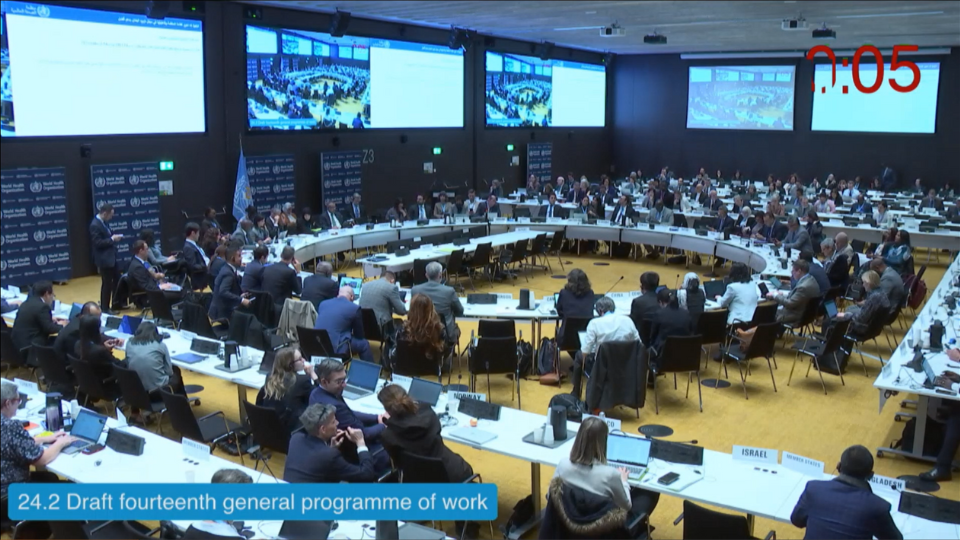
IMPORTANT LINKS!
Original text: Baby Milk Action

